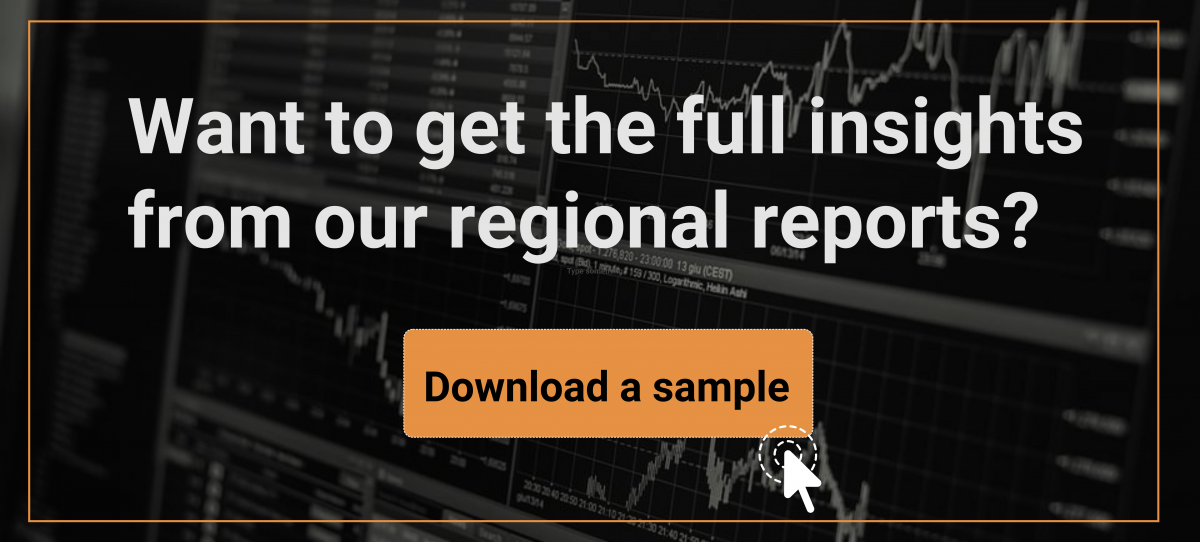On 1 November, a new era for the Eurozone commenced as Christine Lagarde, the former head of the IMF, took over the reins of the European Central Bank (ECB) from Mario Draghi. When Draghi himself took charge in 2011, the currency bloc was on a precipice. Largely thanks to his political savvy and force of personality, epitomized by his “whatever it takes” speech in 2012, the banking crisis was averted. Moreover, the unemployment rate has fallen from 12% at the height of the crisis to 7.5% today, spreads between bonds yields of southern European countries and German bunds have narrowed significantly, and support for the monetary union and the euro has reached an all-time high of 76%, according to Eurobarometer. This legacy has won Draghi many admirers, with Frederick Ducrozet, a senior economist at Pictet, gushing: “Farewell to you Mr. President. Thank you on behalf of 340 million citizens. And be proud, be very proud.”
Nevertheless, his actions were not without costs and the risks ahead are aplenty for Lagarde who will steer the ECB’s course for the next eight years. As highlighted by the chart above, economic growth is sluggish and we project growth to remain soft next year, with our panelists’ growth forecasts ranging from 0.5%–1.5%. The Eurozone composite PMI fell to an over six-year low in September and a tough external environment will likely continue to weigh on investment and exports, while household spending is seen stalling on more modest labor sector gains. A sharper slowdown in China, an intensification of trade tensions and a hard Brexit all further cloud the outlook. Meanwhile, inflation is way below the targeted near, but under, 2%; European households are saving more and spending less, even as negative rates punish savers; the ECB’s balance sheets doubled under Draghi’s tenure; and the Central Bank’s toolkit appears increasingly toothless after years of quantitative easing (QE) and ultra-loose monetary policy.
It’s politics, stupid!
Despite the array of economic problems facing the Euro area as listed above, Lagarde’s greatest challenge will be political and the former French finance minister showed she was more than aware of this in her first speech she gave as president on Monday evening. Tasked with speaking in honor of Wolfgang Schäuble—Bundestag president, former German finance minister and with whom she worked closely during the Greek debt crisis—Lagarde said:
While she refused to “talk about monetary policy or anything related to it”, reading between the lines this appeared to be a subtly worded call for the German government to “move” and shoulder more responsibility. In his farewell speech, her predecessor rather more explicitly urged that:
Germany’s fiscal surplus will continue to be a big source of contention ahead. As the single currency’s largest economy by some distance and consistently running a healthy fiscal surplus, Germany’s government has more space than most to increase spending to stimulate domestic demand and economic growth. Calls to do so have grown even louder in recent weeks, in tandem with heightened concerns that Europe’s most important engine will stall into a technical recession.
According to our panelists’ forecasts for Germany’s fiscal surplus next year (0.5% of GDP) and government consumption growth (2020: +1.7%), it seems that a significant ramp-up of government spending is unlikely. In fact, judging by the fierce backlash against Draghi’s last stimulus plan and the Bundesbank president’s and German press’ longstanding criticism of QE and negative rates, it seems Lagarde could come under significant pressure to change course. Lagarde’s legacy will thus rest on whether she can use her considerable political experience and leadership skills to build consensus and bring on board the Eurozone’s big players so that the currency bloc can avoid a “Japanification” of Europe and is better prepared for the next crisis.
